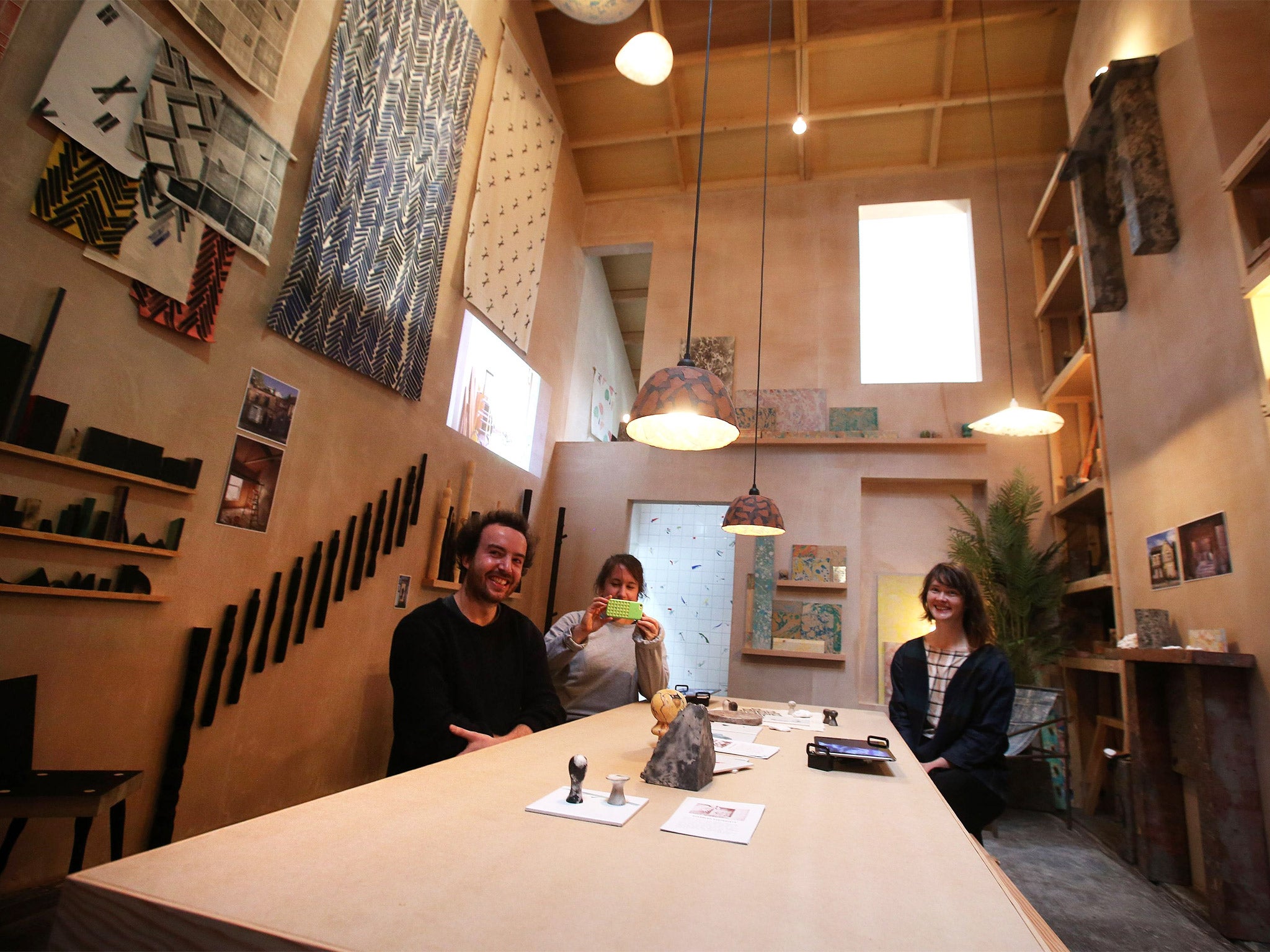Turner Prize, Tramway, Glasgow, first look: Community feel-good project stands out on an otherwise weak shortlist
With no Scots nominated, Assemble and Bonnie Camplin’s 'The Military Industrial Complex' stand out

Your support helps us to tell the story
From reproductive rights to climate change to Big Tech, The Independent is on the ground when the story is developing. Whether it's investigating the financials of Elon Musk's pro-Trump PAC or producing our latest documentary, 'The A Word', which shines a light on the American women fighting for reproductive rights, we know how important it is to parse out the facts from the messaging.
At such a critical moment in US history, we need reporters on the ground. Your donation allows us to keep sending journalists to speak to both sides of the story.
The Independent is trusted by Americans across the entire political spectrum. And unlike many other quality news outlets, we choose not to lock Americans out of our reporting and analysis with paywalls. We believe quality journalism should be available to everyone, paid for by those who can afford it.
Your support makes all the difference.That the Turner Prize has finally come to Glasgow but without a single Scottish artist in its line-up is not without some irony. Scotland, and the Glasgow School of Art, has dominated the Turner Prize’s shortlist for some years now.
It’s an unusual shortlist for another reason too. This is the first year that an architectural design group has been nominated. Assemble is a collective of 18 practitioners, all aged 30 or under, who, since they formed five years ago, have been working with residents in rundown communities to refurbish their homes. At the aircraft hangar-like space of Glasgow’s Tramway arts centre a gable-roofed shed has been built as a living-room-cum-workshop/showroom. Tiles, wobbly basins, door knobs, rough-hewn chairs, granite fireplaces and printed fabrics that hang on the walls like fine tapestries are all examples of work undertaken for residents at Granby Four Streets, in Liverpool’s Toxteth.
If none of it has quite the finish you might expect from a high-end design studio, at least there’s the satisfaction from the locals who’ve had to get their own hands dirty. The collective obviously works from the premise that restoring civic pride is just as important as restoring homes. They may just win for the community feel-good factor alone, and if you’re tempted by any of the designs, then the Granby Workshop catalogue is available.
Singers are nothing new to the Turner Prize. Scottish artist Susan Philipsz won the Turner Prize with her recorded renditions of traditional Scottish ballads in 2010. Thanks to her reedy voice, Philipsz’s contribution was more drippy than haunting, but this year there are regular live concerts by six quite extraordinary classical singers, courtesy of Janice Kerbel. She’s been nominated for DOUG, a cycle of nine songs. One male singer appears to go from ‘castrato’ to bass in the space of a minute, but I’m not sure Kerbel’s sung poems are themselves really worthy of a prize.
By far the weakest artist this year is Nicole Wermers. Marcel Breuer chairs have been arranged in various ‘conversational’ groupings. Their backs have been removed, and upholstered in fur coats. The point, if there is one, is subtle to say the least. Masculine modernist chairs draped in feminine furs?
Finally, there’s Bonnie Camplin’s The Military Industrial Complex. If the title sounds hard to chew, then the work itself certainly looks it. At least initially. You’ll find dozens of books on mystical philosophy and the mind, but if you settle down to one of the video screens and pop on a pair of headphones you’ll hear outrageous stories about alien visitations and communications with the dead and famous, with ordinary folk interviewed about their out-of-body, out-of-mind. experiences. This is Susan Hiller alien-abduction territory, but much less aesthetically compelling.
When it comes to a winner, it has to be between Camplin and Assemble.
Join our commenting forum
Join thought-provoking conversations, follow other Independent readers and see their replies
Comments